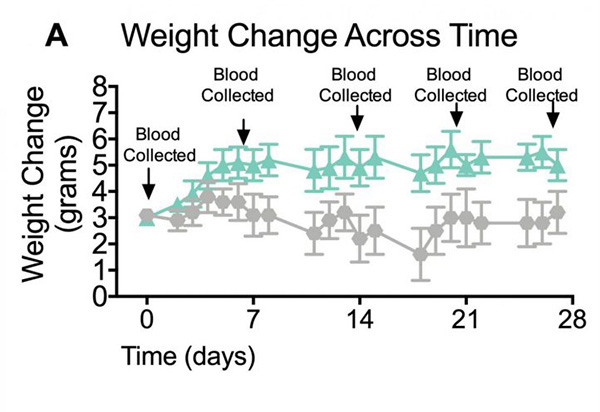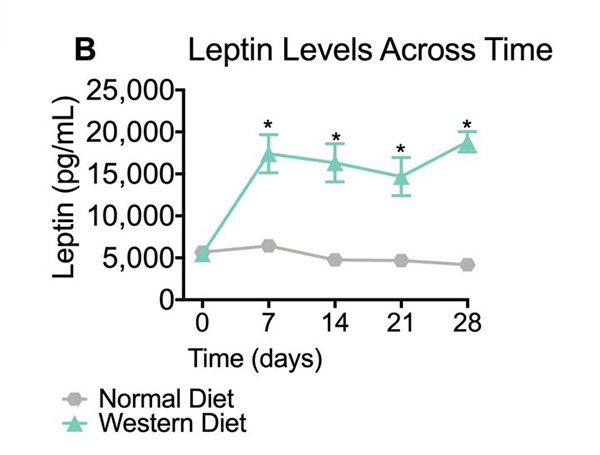Western Diet-Induced Obesity & Hyperleptinemia
Discover how Melior’s unique phenotypic screening platforms can uncover the untapped value of your candidate therapeutic
High fat diets in rodents change multiple biochemical and physiological parameters that reflect the biochemical and physiological changes observed in obesity. Such diets induce dramatic changes in weight concomitant with elevations in serum cholesterol, lipids and triglycerides. Moreover, these high fat diets can lead to atherosclerotic lesions, insulin resistance, with and hyperleptinemia.
Leptin is an adipose tissue-derived hormone belonging to the class-I helical cytokine family. Leptin has been shown to regulate food-intake and energy expenditure in both rodents and humans. Circulating levels of leptin have been shown to increase in high-fat diet-fed mice and obese subjects, leading to a state of hyperleptinemia. Hyperleptinemia has been linked to the dysregulation of appetite control.
Melior has characterized a mouse model of Diet-Induced Obesity by chronically feeding mice a modified high fat diet (Western Diet) that was designed to approximate the typical human diet of North America and Europe. This chronic assay also serves as a platform for a number of additional acute and subchronic assays designed to model various features of metabolic and obesity disorders consistent with diet-induced changes in humans. The figure below shows examples of how Melior works with high fat diet mice.
Ready to get started or looking for a custom model?
Contact us today for more information about our bespoke research models and to discuss how we can help you answer your unique research questions.
Comparison of high fat diet mice to normal chow mice. The above data show change in weight (A) and leptin levels (B) across time for normal CD-1 mice fed either a normal diet or a high fat ‘Western style’ diet. Across time animals fed a Western diet exhibited higher levels of both weight gain and leptin levels similar to physiological changes humans undergo with diet-induced obesity. Over time, the high fat diet mice exhibited higher levels of both body weight and leptin levels similar to physiological changes humans undergo with diet-induced obesity. Data are mean ± SEM; *p<0.05 compared to normal diet. (N=8/group).





 Interested in running a Western Diet-Induced Obesity & Hyperleptinemia study?
Interested in running a Western Diet-Induced Obesity & Hyperleptinemia study?